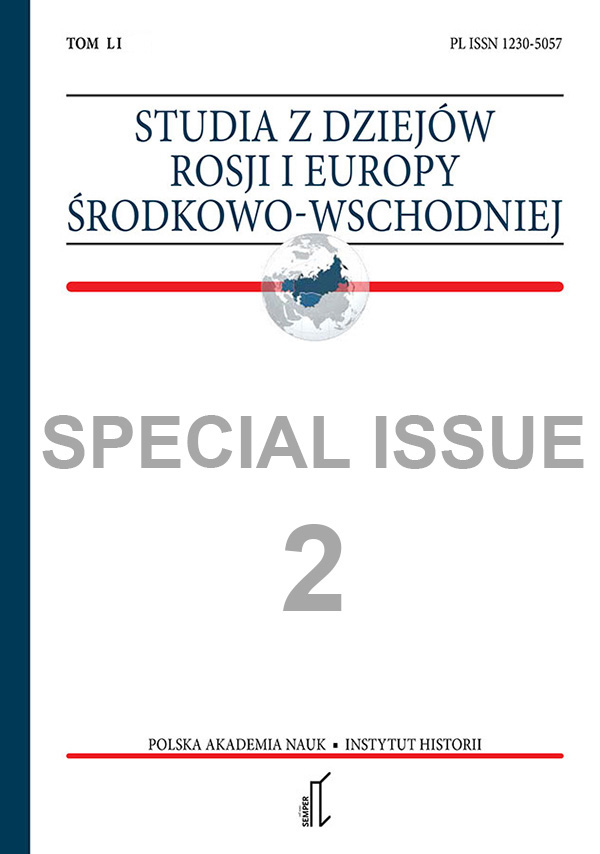Issues of land reform and Poland’s post-war borders in the broadcasts of Tadeusz Kościuszko Radio Station
Issues of land reform and Poland’s post-war borders in the broadcasts of Tadeusz Kościuszko Radio Station
Author(s): Adrian KarolakSubject(s): Diplomatic history, Military history, Oral history, Political history, Recent History (1900 till today), WW II and following years (1940 - 1949)
Published by: Instytut Historii im. Tadeusza Manteuffla Polskiej Akademii Nauk
Keywords: Tadeusz Kościuszko Radio Station; Communist International (Comintern); Polish communists; Polish post-war borders; land reform
Summary/Abstract: According to the Polish-language station operating in the territory of the Soviet Union from August 1941 to August 1942, the land reform should consist in expropriating the owners of large landholdings and distributing their possessions among peasants and farm labourers. First in line were those peasants who fought against the German occupier during the war; second were those farmers, who lost their possessions on account of the occupier’s legislation. The reform would also include broad financial assistance from the state. A rural self-government system was also planned in order to guarantee the proper development of the country.As regards the Poland’s future borders, the broadcasters presented the position of its political superiors, according to whom the eastern voivodeships of the Polish Republic should be transferred to the Ukrainian, Belarusian and Lithuanian Soviet Republics. Key cultural, scientific and economic centres would therefore be taken over by the Soviet state. The shape of the border was to follow the Curzon Line, at variance with the Polish raison d’état. The losses in the east were to be compensated by the recovered lands in the west. This approach was explained with matters of national security and future economic progress. The Station’s position on both the land reform and Poland’s future borders reflected the opinions of the Polish communists from the Union of Polish Patriots and the Polish Workers’ Party. The broadcasts were addressed mainly to non-educated people (peasants, workers), and for this reason the language used was simple and plain; they were meant to play on emotions, so they were illustrated by distorted and biased historical facts.
Journal: Studia z Dziejów Rosji i Europy Środkowo-Wschodniej
- Issue Year: 51/2016
- Issue No: 2
- Page Range: 87-116
- Page Count: 30
- Language: English

